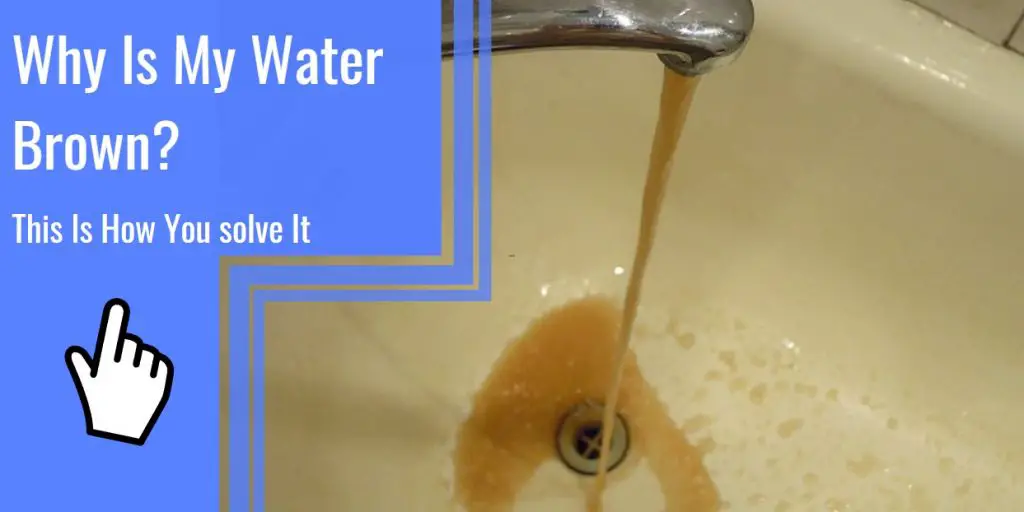What you find on this page:
When you turn on the faucet, you expect to see clear running water. The clear water could turn cloudy and brown with the flick of a faucet, causing panic to run through your veins. Fortunately, with some deductive problem solving, you can figure out what turned your water brown and fix it.
Mineral Disturbance
Brown coming out brown could be a sign that minerals in your water lines have been disturbed. It’s commonplace for water pipes to have minerals and sediment. Sometimes, they get pushed around by nearby construction or work on water mains.
Homeowners with well water might see brown water from a faucet after heavy rainstorms. The water table might release excess minerals and sediment in your water table, causing your pipes to run brown water.
Solution
If mineral disturbances cause your water to be brown, rest assured that the problem is temporary and will resolve itself within the day. Eventually, the minerals and sediment will settle and travel through your water lines. However, if your water remains brown, then you have a different problem and should contact a plumber or your community water management office.
Homes with occasional mineral disturbances might need a water filtration system, especially if the water comes from a well rather than a municipal system. These systems remove iron and other impurities from the water after it enters your home.
Filtration systems do require some regular maintenance from the homeowner or a professional water treatment technician.
You can make a smart decision about adding a water filtration system by talking to your neighbors about their water. If they have brown water when you do, then the problem is not with your home, but with your community’s water. A filtration system can help, but you should also call the municipal water offices to let them know about the problem.
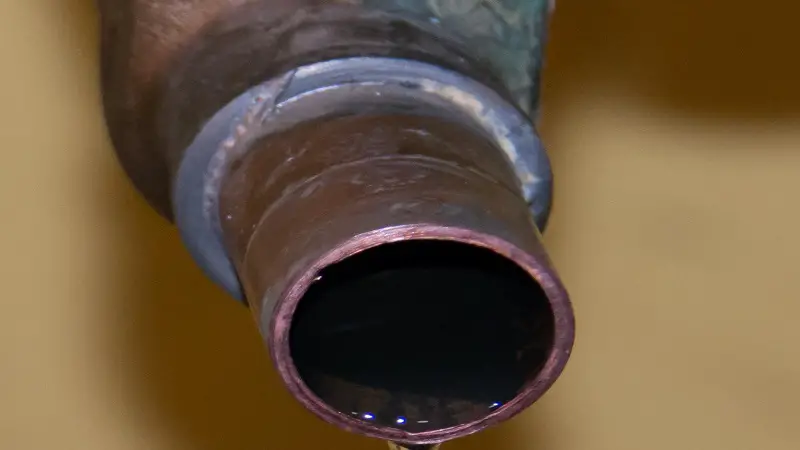
The Pipes are Rusty
Sometimes the brown water comes from corroded and rusty pipes. After a time, water pressure pushes rust into the water, then you see it in your pipes.
If you suspect that your pipes have rusted, run your water for about an hour to see if your water returns to a normal transparent color. You might see some rust in the bottom of your sink, near the drain. Check other faucets to determine if you have a problem at the water main or if it’s at a specific spot in your home.
Solution
Pipes filled with rusty water need to be replaced before more rust gets into your drinking water. If you don’t replace them, they could develop a leak and cause more costly problems in your home. The best solution is to hire a plumber to inspect your pipes, and ask them: why is my bath water brown? Why is my sink water brown?
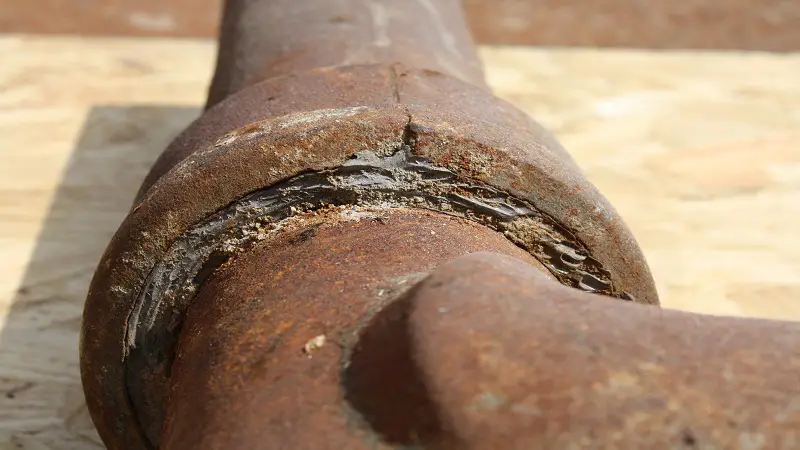
Damaged or Recently Replaced Water Pipes
Brown water could be a result of recent work on your plumbing system. Damaged pipes, especially in older homes, release rust and sediment into the water. If you’ve recently had your pipes repaired, the rust and sediment could be moving through your plumbing system.
Another sign you could have damaged pipes is if you only have brown water in one bathroom. When the problem is in one area of the house, it is easier to determine where the problem is inside of your pipes.
When plumbers work on pipes, they often have to shut off the water to your home. So you might have brown water after a water shut-off was opened back up. The water sitting outside of your home might have picked up iron and debris which could answer the question about why your water is brown all of a sudden.
Solution
You can run your water for a few minutes to let everything pass through to determine if you need to call a plumber. If the water becomes clear, then you know your plumbing repairs worked. However, if the water continues to flow with a brown tint to it, then you should contact a plumber.
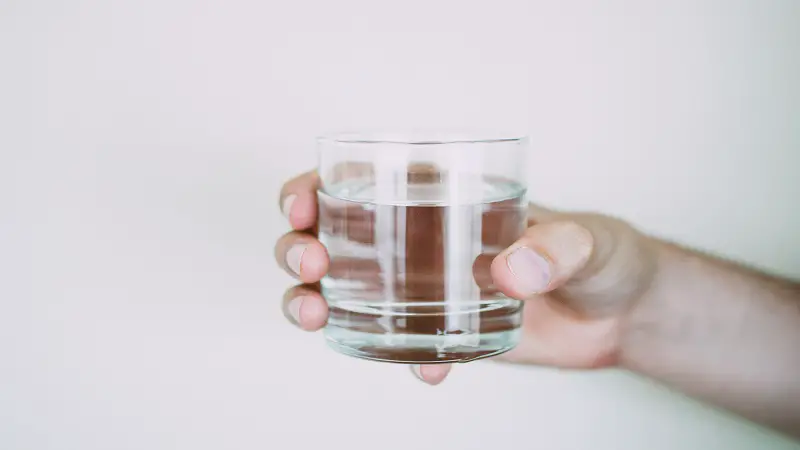
Water Heater Needs to Be Flushed Out
Older water heaters can create problems with hot water. Water heaters develop scale on the walls and occasionally, the scale and rust fall to the bottom and get into your faucets and showers. When you have brown water in your pipes, it could be a sign your water heater needs to be flushed.
Solution
To determine if your water heater is to blame, run the cold water for a while. If the cold water is clear, try the hot water again to see if your water stays clear. The clearest sign that you need a water heater flush is if the hot water is brown, but cold is clear.
If your cold water is brown, then the problem probably isn’t with your water heater. You can also rule out the water heater problem if you notice why is my toilet water brown, as it’s cold water in the toilet.
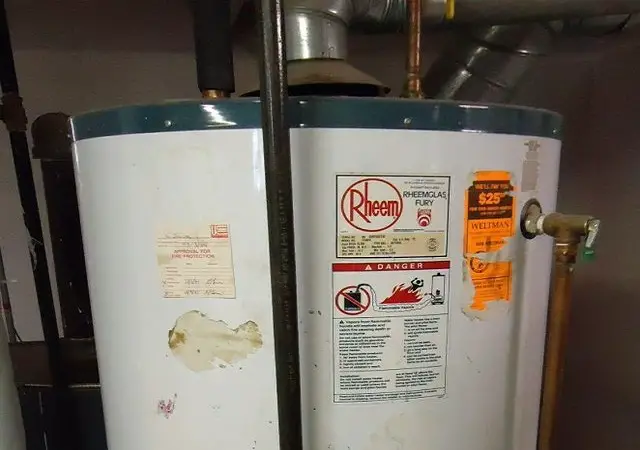
Why Is My Hot Water Brown?
When your water heater sends brown sediment, minerals, and rust through your pipes, it’s a sign that your water heater needs to be replaced soon. Rather than learning how to fix brown hot water yourself, call a plumber who can do it right the first time.
Since no one should live with brown water, the best solution is to call a plumber to inspect your water heater and your plumbing system.
Is This Water Poisonous or Harmful?
Brown water is poisonous or harmful unless you don’t take care of it. Most households will see brown water coming from their taps at some point. If the brown water doesn’t go away quickly, then the best choice is to call a plumber.
If you’re wondering what is brown water, it’s the result of having too much iron in your water. The iron can give your clothing a brown or red tint. It can also damage your home’s fixtures by building up the scale on the inside and staining on the outside.
Is Brown Water Safe to Drink?
Brown water can create problems for people who already have too much iron in their organs – a medical problem called hemochromatosis. Despite the relative safety of iron-laden water, it’s best not to drink it. Most people do not like the taste, and they don’t find it very appetizing to look at either.
Is Brown Water Safe to Bathe In?
Brown water is safe to bathe and shower in, but you might not like how your body feels afterward. The best-case scenario is that the brown color goes away after a few minutes or a few hours. If it doesn’t, then it might leak into your home or your water main might need work.
When your toilet water is brown, it can stain your porcelain toilet bowl. Iron and other minerals stick to surfaces, which is why you might see stains in your fixtures even if your water is clear. If you find iron stains in your fixtures, use a combination of hot water and baking soda to remove them.
Why Repair Rusty Pipes Quickly
Remember that rusty pipes attract bacteria. They can also corrode and leak, which opens your pipes to more contaminants. Leaky pipes tend to cause mold and mildew to build up in dark, damp places. Fixing your corroded pipes before they crack will save you significant dollars in the long run.
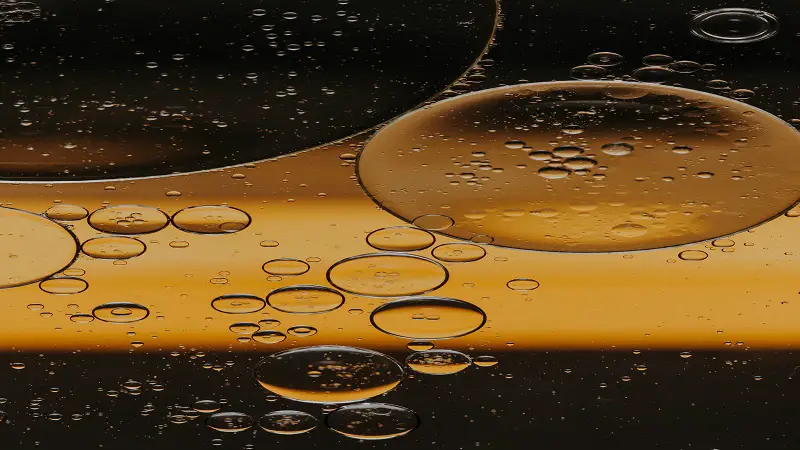
Call the Town or City
All water systems require maintenance, so occasionally municipal water offices flush the lines. With the changes in water pressure, sediment, rust, and other dirt get pushed through water mains and into neighborhoods.
Sometimes, the discolored water makes its way into homes. As more communities have aging water lines, problems related to city water become more frequent.
Homeowners who find all of their faucets and showerheads delivering murky brown water can usually blame the problem on the municipal water lines. Something has happened with the water pressure, either from planned flushing or another event.
Explanation
Usually, municipal water plants take care of the problem, so the city water lines clear out in a few hours. When the city is flushing its water lines, it is best to rely on bottled water. Do not use hot water, so the brown city water cannot infiltrate your hot water heater.
If the brown, discolored water continues to pour from all of your faucets after a few hours have passed, you should call the municipality to ask them why is my city water brown. They should be able to answer your questions and help you figure out where the problem originated.
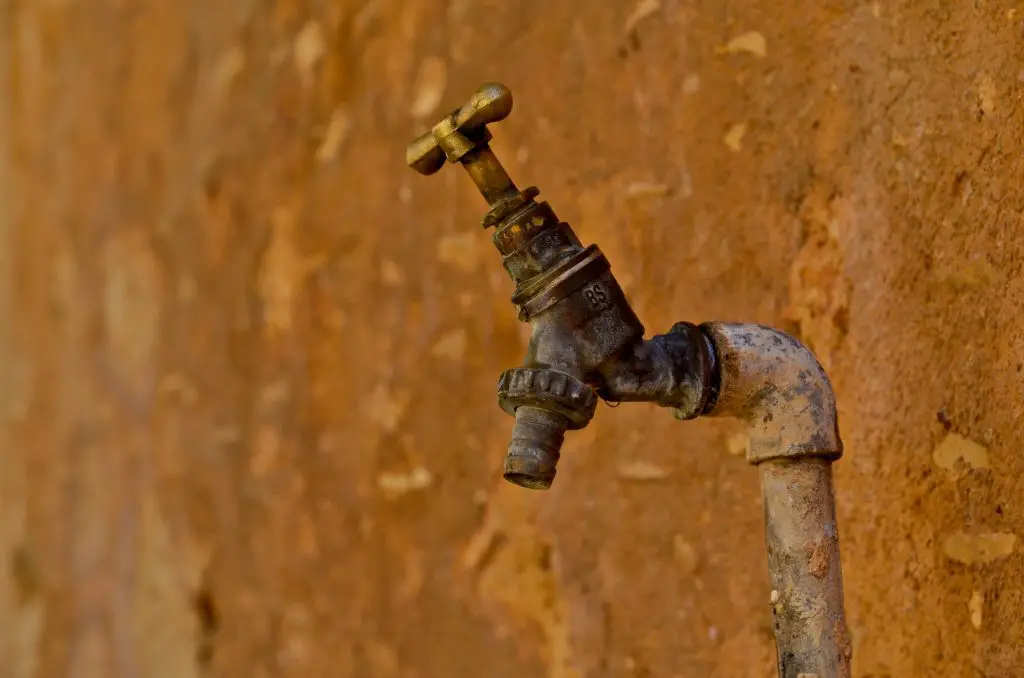
Conclusion
Understanding why your water is brown and figuring out how to solve the problem can help you save money, time, and worry. Often, brown water is a sign that something is wrong with your pipes, but it could also be something from your municipality. Brown water spewing from your faucet might trigger anxiety, but it is usually a temporary problem.
When you’re certain there might be an issue with your pipes, calling a plumber might be necessary. Click here to find your cause for brown water, and if a plumber is required.
If your faucets start pouring brown water, the city’s waterline may be at fault. Contact the municipality to ask them why your water is brown. If the waterline isn’t the issue click here to find all other causes and solutions.
Brown water isn’t necessarily poisonous, but consuming it can be dangerous for people with certain health conditions. Here you’ll find all risks of brown water, and how to get rid of the water.

